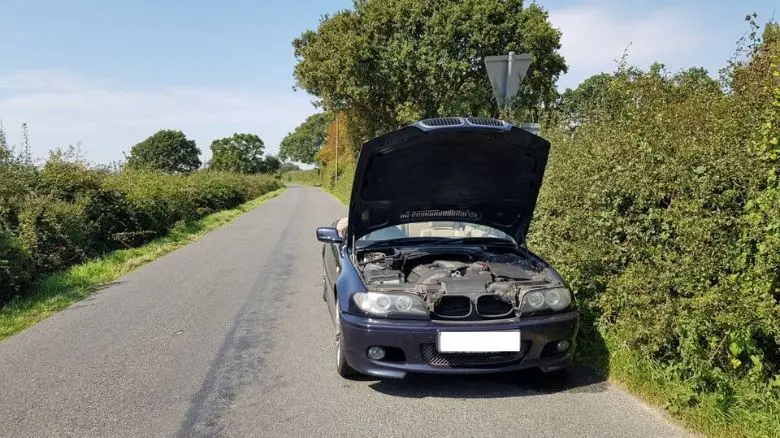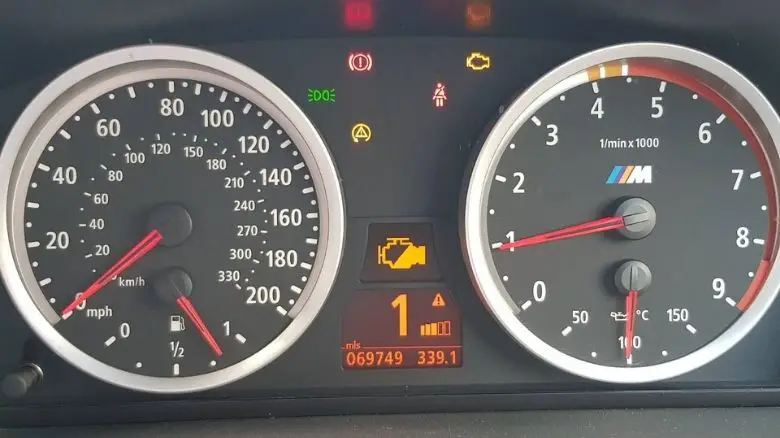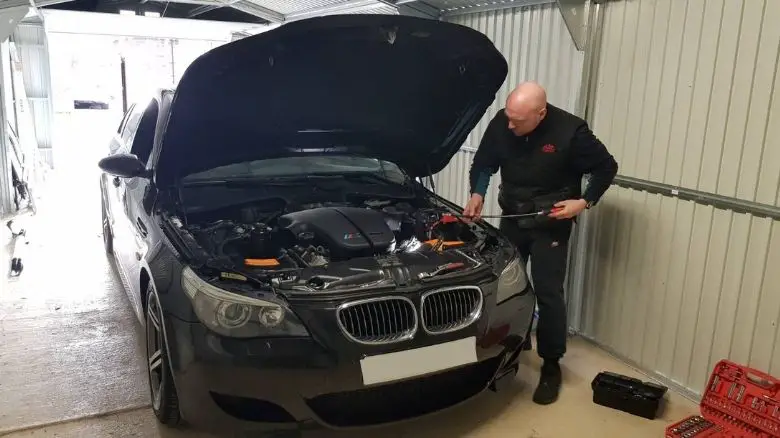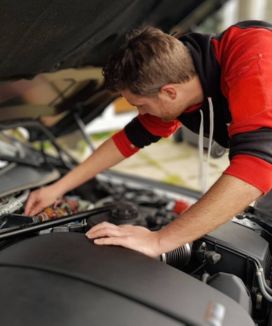Are Classic Cars Reliable?
Table of Contents
Many people buy newer cars as they don’t want to deal with the perceived reliability issues that come with classic cars, but is that a sensible approach to take?
Older cars often have more appeal than modern cars due to their character, and buying one can seem like a great decision to avoid depreciation costs. But are classic cars reliable?
Classic cars are not as reliable as modern cars due to the age of their components. Although modern cars are more complex, classic cars are older and most have covered many thousands of miles. You can expect additional wear on working parts which can cause reliability issues.
So classic cars are not as reliable as their modern counterparts, but can you mitigate the risks of breaking down, and when are older cars likely to experience problems?
Are Older Cars Less Reliable?
Older cars are less reliable than newer cars, but they are often easier to fix when they do break down due to their simplicity.
Older cars do not tend to have complicated electronic systems which can cause issues and require specialist knowledge to fix, and generally components are easier to fix or replace if things do go wrong.
However, research shows that nowadays the cost of maintaining a modern car is reducing and people are holding onto their new cars for longer as a result.

Are Older Cars More Durable?
Most modern car components are built to last longer than ever, but certain materials and components used in older cars are considered more durable. Older cars were also designed to be readily repaired or rebuilt if necessary, which gives them an advantage over modern cars.
Modern cars are not designed to be rebuilt like many older cars were, which is a reflection on today’s throwaway society.
One area where modern cars far exceed the standards of yesteryear is rustproofing. Depending on the climate the car has been kept in, rust can become a major issue for older cars. Modern cars are far more durable in this respect.
Despite maintenance costs reducing and certain components being built to last longer, modern cars are seemingly built to be disposable. This is in direct contrast to many of the classic cars still on the road today.
Classic Car Reliability vs Modern Car Reliability
Most consider modern cars to be extremely reliable compared to classic cars, but it does depend on the model and manufacturer of the car you choose.
Many people around the world choose to buy new cars to avoid the risk of breaking down, taking on the burden of depreciation in the process. People buying new cars expect them to be reliable for a number of years, with little or no maintenance work.
That can be true in many cases, but not all. There are plenty of stories of brand new cars being unreliable straight from the factory.

Consumer Reports’ Annual Reliability Survey regularly finds marques such as Mazda, Toyota and Lexus to be the most reliable, whereas Tesla, Volkswagen and Lincoln are often among the least reliable.
Reliability in classic cars depends on how well-built the car is, but you also need to factor in how previous owners have treated the car, and how durable the car is.
If the classic car in question has a full service history, has had preventative maintenance work carried out, and the model has a record for being reliable then there’s no reason to think that it will be considered an unreliable car.
It is, however, more likely on average that you will suffer reliability issues in a classic car than a modern one.
Can a 20 Year Old Car be Reliable?
A 20 year old car can be reliable if previous owners have kept it well maintained throughout the course of its life. If not, you may have a lot of work to carry out to improve its reliability.
Buying a car that is more than 20 years old can be daunting, as you’ve got to establish how it’s been treated over those years. There will be some clues, for example the number of stamps in its service book and paperwork showing any work carried out.
If you’re not completely happy that the car is in good condition, it’s worth moving on to the next one or you may find yourself out of pocket when the repair bills start coming in.
At What Mileage does a Car Break Down?
This will depend on how well the car has been maintained throughout its lifetime. If regular maintenance and servicing has been carried out, a car can easily do 100,000 miles without a breakdown.
On the other hand, if the car has been treated poorly, it may break down within 15,000 miles. Cars are designed to be serviced at regular intervals, and not adhering to these intervals will cause extremely poor reliability in the long-run.
It’s not unheard of for cars to do over 500,000 miles in their lifetime if the correct maintenance is carried out at the correct time. This is testament to how well certain manufacturers build their cars.
What Causes a Car to Breakdown?
Flat batteries, cooling system issues, and clutch problems are some of the most common reasons people experience car breakdowns.
Battery issues on classic cars are common as they’re often not driven much, and lose their ability to hold charge over time. One way to mitigate this is to connect the car to a battery conditioner when it’s not being used.

If your engine warning light comes on, it indicates there could potentially be a serious fault with your car and it should be inspected as soon as possible. Many people experience breakdowns and serious engine damage as they do not get their car checked once this light has come on.
Issues with the cooling system could lead to the car overheating, and if it continues to be driven it could spell disaster for the engine.
These are just some examples, but classic cars have a myriad of components that become worn over time and could lead to a breakdown if they’re not maintained correctly.
How Can I Prevent my Car from Breaking Down?
Performing preventative maintenance is one of the best ways to reduce the risk of your car breaking down. You can also ensure it is serviced regularly by a competent garage to minimise risk further.
The components in cars usually have a limited lifespan, and once a car reaches a certain age it’s wise to start performing preventative maintenance.

Suspension components, drive belts, transmission and differential are all examples of areas that can cause greater issues if left unmaintained over the years. It’s best to preventatively change these components before they go wrong to reduce maintenance costs in the long-run.
Rust is another issue to look out for in older cars, particularly if you live in a country that puts salt on the roads during winter. Once rust has started, it can spread throughout the car and if it spreads too far it can be terminal. If rust is spotted, it should be dealt with straight away.
You Can Drive a Classic Car Every Day
Many people advise against driving a classic car every day, but it can be done.
If you’re happy with the elevated risk of having a reliability issue on your way to work, for example, then it’s perfectly fine to drive your classic car every day.
Putting more miles on the clock will ultimately mean there is potential for more issues to arise, but you can mitigate that risk by carrying out regular servicing and preventative maintenance.
Be sure to research the market before the market thoroughly to find out if the classic car you’re looking for has a good reliability record. Check out our list of the most reliable classic cars to help on your search.
ABOUT THE AUTHOR
Adam Chinn writes about the intersecting worlds of classic cars, driving pleasure, and smart investment strategies. Starting his journey at 26, he’s proven that one doesn’t need to be wealthy to begin investing in classic cars.
Adam’s insights have been recognized on platforms such as MoneyInc, Swagger Magazine, and Top Speed.



